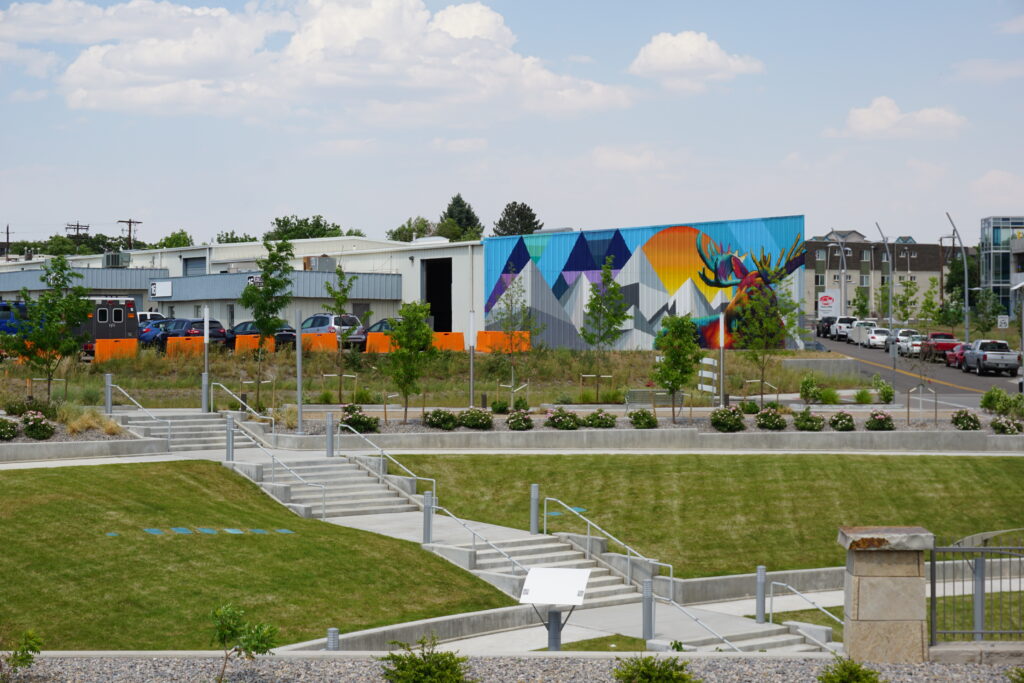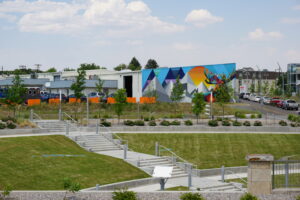In the face of rapid technological advancements and an ever-changing market landscape, businesses need to embrace evolution in their strategies. This involves staying updated with the latest trends, predicting future shifts, and being adaptable to change.
By doing so, businesses can maintain competitiveness, cater to changing customer needs, and ensure sustainable growth.
Industrial space plays a pivotal role in a company’s operations. It serves as a hub for manufacturing, storage, and distribution of goods, directly impacting a company’s ability to serve its customers effectively.
Additionally, the location and quality of the industrial space can significantly influence a business’s efficiency, logistics costs, and overall productivity. In a global economy that’s becoming increasingly interconnected, the strategic leasing of industrial space becomes crucial for business success.
Current Business Landscape
In 2024, the business landscape is going through some major changes. Technological advancements, consumer preferences, and global events are all playing a role in shaping this new reality.
Overall, it’s disrupting the traditional way of doing things! Businesses are reinventing themselves, embracing digital transformation, and making sustainability a priority.
But let’s be real, these transformations come with their fair share of challenges, especially for traditional businesses. With remote work and digital ecosystems on the rise, maintaining physical space is becoming expensive and logistically tricky.
It’s a constant struggle to find the right balance between in-person collaboration and the growing demand for remote alternatives. Costs are going up, space management is a headache, and the need for physical presence is decreasing.
It’s a whole new ball game out there, and businesses have to navigate these challenges in order to thrive.
The Advantages of Leasing Industrial Space
One of the primary advantages of leasing a Denver industrial space is cost-efficiency, providing financial flexibility for businesses.
Leasing industrial properties eliminates the hefty upfront costs associated with purchasing property, freeing up capital for other vital areas of operation. Additionally, leasing often includes maintenance costs, making budget forecasting easier for organizations.
Scalability and adaptability for growth are other significant benefits. Companies in the growth phase can adapt their space requirements as they expand, without the constraints of owning a fixed property.
They can lease additional space when needed, and scale down when necessary, providing a high degree of operational flexibility.
Lastly, leasing provides access to specialized facilities and equipment that might be financially burdensome or impractical to own, especially for small to medium-sized enterprises.
These include things like large-scale machinery, storage systems, and high-tech security systems. Thus, leasing industrial space can offer an all-inclusive, cost-effective solution for businesses, fostering their growth and success.
Emerging Trends in Industrial Leasing
In this era of digital transformation, technology integration is a big deal in industrial leasing. Basically, it means incorporating automation, AI, and IoT devices to make industrial spaces more efficient and productive.
In other words, using smart technologies in warehouses and factories for things like real-time inventory management, predictive maintenance, and seamless logistics. It’s a game-changer, really. Businesses are all about these tech-integrated spaces now.
So, another major trend in industrial leasing is sustainability. More and more businesses are realizing the importance of being environmentally friendly.
They want industrial spaces that minimize their carbon footprint. It’s not just about following regulations, but also about being socially responsible and meeting the demands of employees and customers who want greener operations.
These sustainable industrial spaces have cool features like energy-efficient lighting, solar panels, recycling systems, and green building materials. They’re like the new cool kids in the industrial leasing market.
Key Considerations for Industrial Space Leasing
When it comes to leasing industrial space, there are a few key things to keep in mind for a successful business:
Location and Accessibility
First off, you want to choose a location that’s easy for both your employees and freight transportation to get to. Plus, make sure it has all the infrastructure you need to keep things running smoothly.
Lease Agreement Negotiations
When negotiating your lease agreement, pay close attention to the terms and conditions. Look for things like reasonable rent increases, maintenance responsibilities, and exit clauses. And don’t forget to fully understand everything before you put pen to paper.
Future-Proofing Your Business
It’s important to think ahead and consider how the industrial space you’re leasing can support your future growth plans.
Think about things like expansion possibilities, technological upgrades, and how adaptable it is to market changes. It’s all about finding that balance between your current needs and long-term sustainability.
By considering these factors, you’ll be well on your way to success in the ever-changing world of industrial space leasing.
Summary of Benefits
In this ever-changing business environment, industrial leasing offers a ton of advantages. It’s a great way for companies, especially startups and SMEs, to set up shop in their preferred locations without the hefty upfront costs of ownership.
Plus, lease contracts often come with maintenance and security services, so tenants can focus on what really matters – their core business activities. And the best part? It gives businesses the flexibility to scale up or down as their needs evolve.
Industrial leasing is a savvy move for businesses aiming for agility and financial efficiency. It opens up possibilities for location-specific benefits, frees up capital for growth, and reduces the risks associated with owning property. Not to mention, having maintenance and security services included in the lease can result in significant savings in the long run.
So, business owners, here’s the bottom line: industrial leasing is a valuable tool for strategic growth and operational efficiency. It’s a flexible and cost-effective solution that meets your business demands, especially in a fluctuating market.
By leasing industrial space, you can quickly adapt to market changes, maintain financial flexibility, and prioritize your core operations, rather than getting caught up in property management. In a nutshell, industrial leasing could be a game-changer for your success in 2024.


